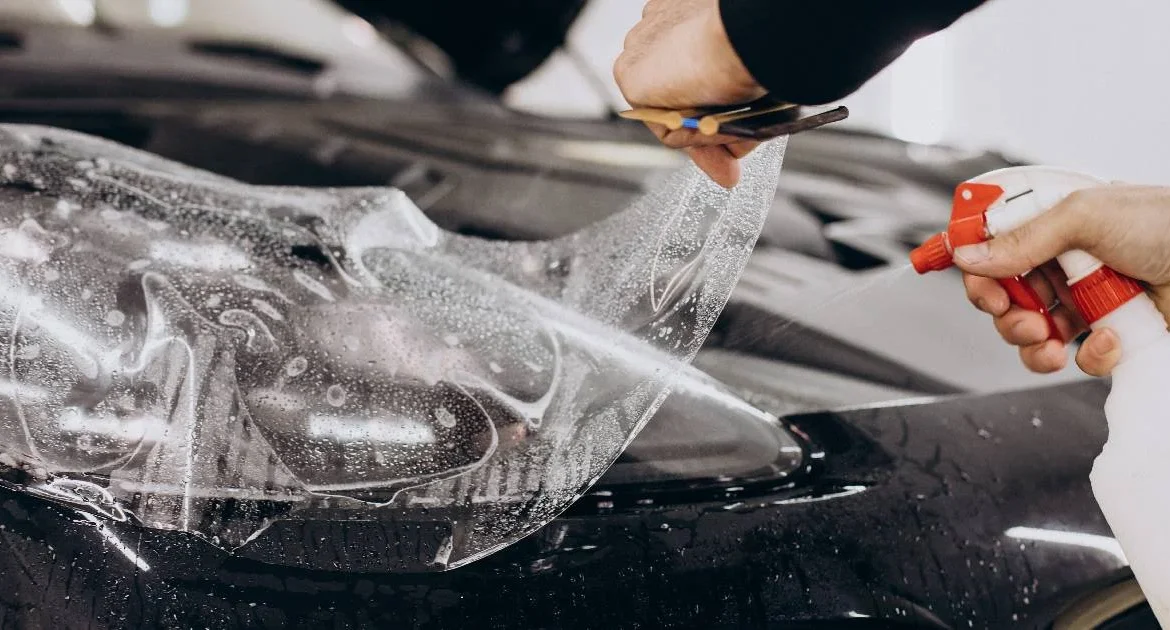Introduction
In the realm of automotive care and maintenance, one term that has gained significant traction in recent years is Paint Protection Film (PPF). PPF car insurance promises to shield your vehicle’s exterior from the perils of daily life, ranging from stone chips and road debris to harsh weather conditions. As car enthusiasts and casual drivers alike contemplate whether PPF car insurance is worth the cost, it’s crucial to delve into the nuances of this protective layer and assess its true value.
What is PPF car insurance, and how does it differ from traditional coverage?
PPF car insurance stands for Paint Protection Film, a transparent layer applied to the exterior of a vehicle to shield it from stone chips, bug splatter, bird droppings, and other environmental elements. Unlike traditional insurance that primarily covers accidents and damages, PPF insurance focuses specifically on maintaining the aesthetic appeal of a car by preventing paint damage.
Why should car owners consider PPF insurance?
PPF insurance can be a valuable investment for car owners who prioritize the appearance and resale value of their vehicles. The film acts as a barrier, absorbing impacts and scratches that would otherwise reach the car’s paint. This can be particularly beneficial for high-end or luxury vehicles with custom paint jobs.
Does PPF insurance only cover paint damage?
While the primary focus is on protecting the paint, some PPF insurance policies may offer additional coverage for minor dents and scratches. It’s crucial to review the specific terms and conditions of the policy to understand the extent of coverage.
Is the cost of PPF insurance justified?
The worth of PPF insurance depends on individual preferences and priorities. If you highly value the aesthetic condition of your car and want to preserve its original paint, PPF insurance could be worth the cost. Additionally, considering the expenses associated with repainting or fixing cosmetic damages, PPF insurance might save money in the long run.
Understanding Paint Protection Film
Paint Protection Film, commonly known as PPF, is a transparent polyurethane film applied to the exterior surfaces of a vehicle. Its primary purpose is to create an additional layer of defense against various elements that can damage a car’s paintwork. PPF is adept at resisting rock chips, bug splatter, bird droppings, tree sap, UV rays, and other environmental contaminants.
Pros of PPF Car Insurance
- Preservation of Aesthetics: PPF serves as an invisible shield, preserving the pristine appearance of your car’s paint. It prevents unsightly chips, scratches, and stains, maintaining the vehicle’s resale value.
- Long-Term Cost Savings: While PPF car insurance may seem like an upfront investment, it can translate into long-term cost savings. Repairing paint damage is often more expensive than the initial application of PPF, making it a wise investment for those looking to protect their vehicle in the long run.
- Enhanced Resale Value: A well-maintained exterior can significantly boost the resale value of a car. PPF car insurance ensures that your vehicle looks newer for a more extended period, attracting potential buyers and commanding a higher price.
- Custom Fit and Clarity: PPF is designed to fit specific vehicle models seamlessly, providing a custom fit that enhances its effectiveness. Moreover, high-quality PPF maintains excellent clarity, allowing the original paint color to shine through without distortion.
Cons of PPF Car Insurance
- Upfront Cost: The primary deterrent for many consumers is the initial cost of PPF car insurance. Quality installation can be relatively expensive, and this upfront expense might be perceived as a barrier for some.
- DIY Challenges: While there are DIY PPF kits available, achieving professional-level results can be challenging for the average car owner. Improper installation may lead to air bubbles, peeling, or an uneven finish.
Conclusion
In the grand scheme of things, the decision to opt for PPF car insurance boils down to individual preferences, budget constraints, and the perceived value of protecting your vehicle’s paintwork. For car enthusiasts who take pride in the appearance and longevity of their vehicles, the investment in PPF car insurance might prove to be well worth it. On the other hand, for those with budget constraints or less attachment to their vehicle’s aesthetics, alternative protective measures may suffice.

